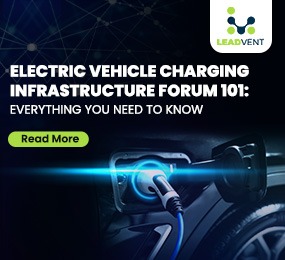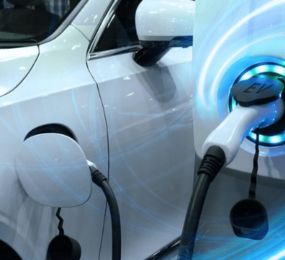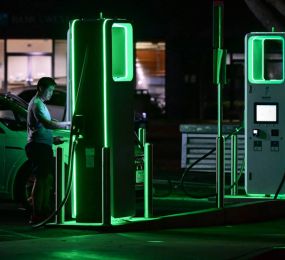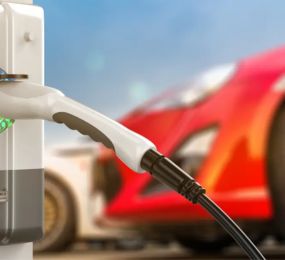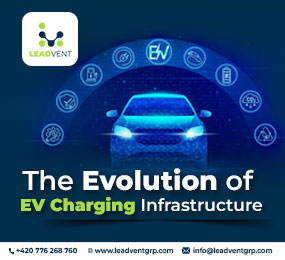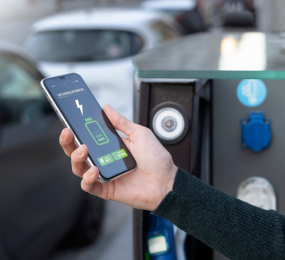European electric vehicle charging networks are growing fast because more people are buying EVs, and governments have introduced supportive policies. Europe operates 730,000 public light-duty vehicle charging stations now but expects to increase that number to 2.7 million by 2035. As Europe reaches 6.6 million battery-electric vehicles, the charging network must grow to support them. Join electric car events 2025 to get the most out of it.
Current Landscape and Growth Trends
A recent European Alternative Fuels Observatory study reveals that charging infrastructure development varies greatly between European regions. France demonstrates strong EV market performance through steady sales with enhanced charging systems in Western Europe as other regions struggle to develop their infrastructure. Europe now has over 900 thousand public charging points, which grew by more than 55% every year between 2021 and 2024.
Ultra-fast chargers now let electric vehicle users charge faster and travel more effortlessly. Fast EV charging infrastructure from Germany and the Netherlands help people travel between locations over long distances. Heading into 2030, the EU will establish public EV charging infrastructure at a maximum separation of 60 kilometres throughout the Trans-European Transport Network.
Case Studies Highlighting Progress
- United Kingdom: British startup Aegis Energy received $122 million from Quinbrook Infrastructure Partners to build five fuelling stations in the UK offering multiple energy types for commercial vehicles. The first facility of these multi-fuel stations will launch in early 2026 to serve electric, hydrogen, hydrotreated vegetable oil, and biomethane fuel requirements.
- Menorca, Spain: EV charging sessions on the island grew by 20.5% between 2023 and 2024, with 25,733 charging instances recorded. MELIB plans to deploy 1300 charging stations by 2030 to reach an 18% EV adoption rate on the island.
Challenges and Considerations
Despite progress, challenges remain. The UK EV charging company Pod Point lost 40% of its stock value when retail EV sales failed to meet annual revenue projections. We need to match our efforts to build charging stations with how many people choose to buy electric vehicles.
Grid stability is another critical concern. As more people drive EVs, power grids must improve their capacity to cope with the higher demand while adding renewable energy systems. The success of handling these obstacles depends on joint action by government agencies and business partners with utility providers.
3rd Annual EV Charging Infrastructure Forum
Organisers of the 3rd Annual EV Charging Infrastructure Forum have chosen Amsterdam for February 26-27, 2025, to tackle industry challenges and promote collective efforts. Joint European Electric Car Events 2025 uniting policy decision-makers with industry members and experts to discuss strategies for developing continent-wide charging infrastructure.
Event Highlights
Visionary Keynotes: Listen to EV pioneers discuss their solutions for pressing industry issues and their innovative approaches.
Panel Discussions with Experts: Leading experts share their views in meaningful discussions.
- Claudio Vittori leads S&P Global's EV component and charging infrastructure research team.
- Laurin Vierrath works as an energy economics expert at 50Hertz Transmission GmbH and specialises in grid stability research and energy transition.
- Aaron Berry leads UK chargepoint teams at the Department for Transport as Deputy Head of the Office for Zero Emission Vehicles.
- Dr Despina Chatzikyriakou leads ZEEKR Europe's charging and energy solutions team to make electric vehicle ownership simple and convenient.
Interactive Sessions: Attend public and question sessions to learn from others and work together.
Networking Opportunities: Connect with industry experts and leading professionals in social events and gathering spaces.
Cutting-Edge Technologies: See the future of green transportation through live presentations of advanced EV charging technologies.
People can use this platform to learn from each other and connect efforts toward developing enhanced electric vehicle charging systems across Europe.
Key Topics
- Infrastructure Expansion: Creating a path to install 2.7 million LDV chargers for public access by 2035.
- Policy Frameworks: Government needs to develop policies that match industry demands to ensure smooth infrastructure growth.
- Technological Innovations: We will investigate new charging solutions to make the process better for both drivers and charging stations.
- Consumer Adoption: Our study examines what stops people from buying EVs through an analysis of charging stations and their expenses.
Why Attend?
The 3rd Annual EV Charging Infrastructure Forum creates exceptional chances to meet influential leaders in the industry. Attendees gain useful information to tackle market difficulties and use it to move their projects ahead at the event. The forum lets people join from all over the world through its two-way online and in-person setup.
FAQs
What is the current state of EV charging infrastructure in Europe?
Today, Europe hosts 730,000 public LDV charging stations across the region, while forecasts show a 2.7 million increase by 2035.
What challenges does the European EV charging infrastructure face?
Europe faces infrastructure gaps across regions while EV growth needs to match charging network expansion to support grid reliability under rising power needs.
Why attend the 3rd Annual EV Charging Infrastructure Forum?
The gathering allows professionals to discover innovative solutions while forging industry connections and solving electric vehicle charging industry issues.
Ending Note
European nations are investing heavily to quickly build out their EV charging systems at a fast pace. The 3rd Annual EV Charging Infrastructure Forum connects essential stakeholders who work together to develop sustainable European transport solutions for future growth. The Electric Vehicle Events 2025 supports European electrification efforts by bringing together innovation experts who work together to develop EV charging plans across the continent.


